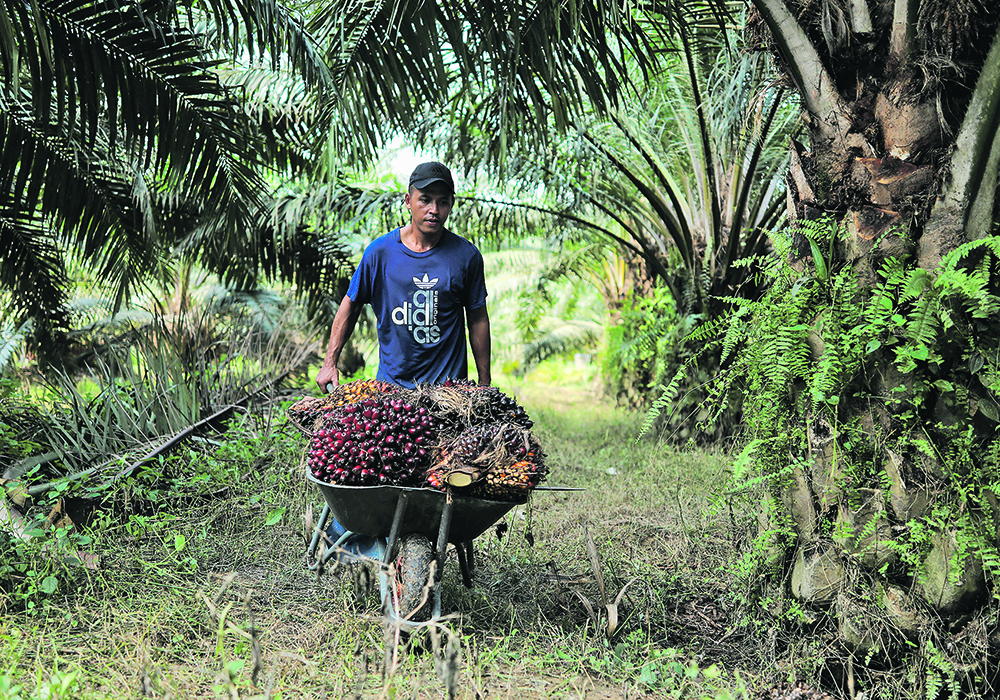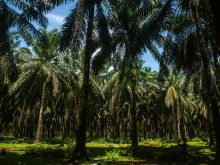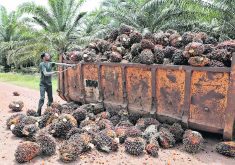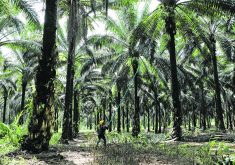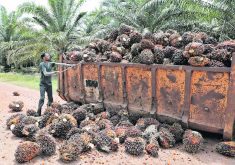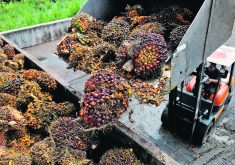Labour shortages caused by the COVID-19 pandemic have eased, making it easier for producers to increase production
KUALA LUMPUR, Malaysia (Reuters) — Malaysian palm oil output is set to improve this year as a labour shortage eases, although challenges remain as planters seek to comply with European and U.S. regulations targeting the sector’s alleged links to deforestation and forced labour, industry officials say.
The country’s palm oil industry, which relies on foreign workers for 70 percent of its plantation workforce, has seen a severe labour crunch in recent years, in part due to the COVID-19 pandemic.
Ahmad Parveez Ghulam Kadir, director-general of the Malaysian Palm Oil Board, said production in Malaysia should come in at 18.75 million tonnes this year while stocks were seen at 1.95 million tonnes amid the recovery in worker numbers.
Read Also

Why feds imposed EV tariffs
Moe and Kinew have a fight on their hands when it comes to eliminating the EV tariff. Canada has to worry about pissing off the U.S. and Mexico and hundreds of thousands of auto workers.
Exports for the year are seen at 15.6 million tonnes compared to 15.1 million tonnes last year, while the price of crude palm oil should range of $1,125 to $12,12 per tonne, he said, up from an average of $1,097 a tonne in 2023.
“For 2024, the labour situation is expected to improve but the concerns on availability are still there,” Kadir said, adding that while 2023 showed a mixed performance, most key indicators were expected to improve this year.
Malaysian plantations and commodities minister Johari Abdul Ghani said the government was committed to addressing labour issues, including workers’ welfare, and improving sustainability measures through multilateral platforms such the Council of Palm Oil Producing Countries.
The European Union passed a law last year banning imports of commodities linked to deforestation, while the United States in recent years has suspended shipments from some Malaysian palm oil companies, citing allegations of forced labour.
Indonesia and Malaysia, the world’s largest producers of palm oil, have criticized the EU law as discriminatory and aimed at protecting the bloc’s oilseeds market.
The two Southeast Asian countries have also sought to persuade buyers that its sustainability certifications, ISPO and MSPO, respectively, already meet international standards.
“Malaysia must continue to position its palm oil industry as a global leader in sustainability,” Johari said, adding that about 94 percent of oil palm planted areas in Malaysia have received MSPO certification.
Johari also said the government is looking into issues raised by the industry regarding the windfall profit levy on palm oil amid rising costs of production, but added that further discussions were needed.
Malaysia imposes a windfall levy of three percent on palm oil prices above $865 per tonne in Peninsular Malaysia and above $1,000 per tonne in Sabah and Sarawak, the country’s largest palm oil producing states.
Malaysian palm oil associations have urged the government to review the windfall levy, calling for the profit threshold for the levy to be raised and for the tax rate for planters in Sabah and Sarawak states to revert back to the previous rate of 1.5 percent.
The plantations and commodities ministry said in September it was reviewing the windfall levy and hoped to complete it this year. The ministry said it does not plan to abolish the tax.

